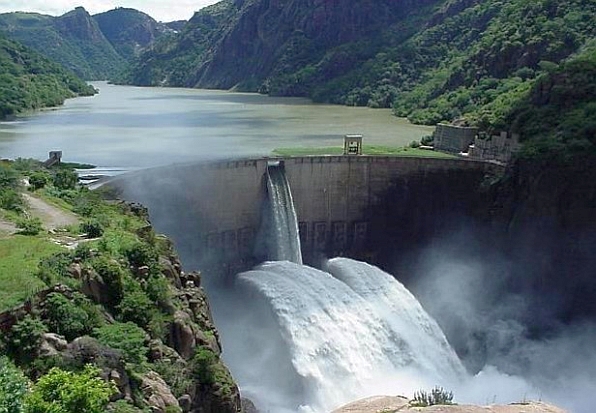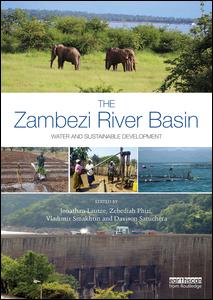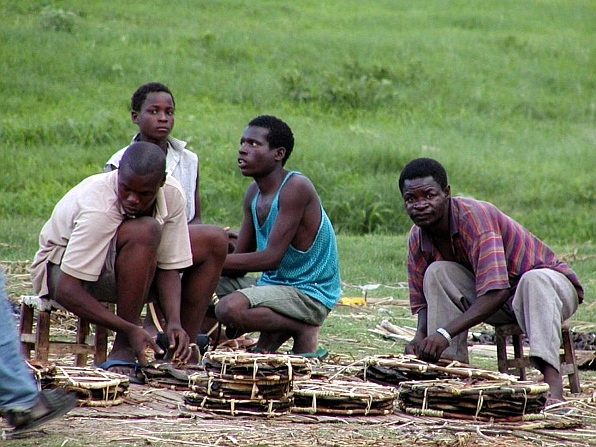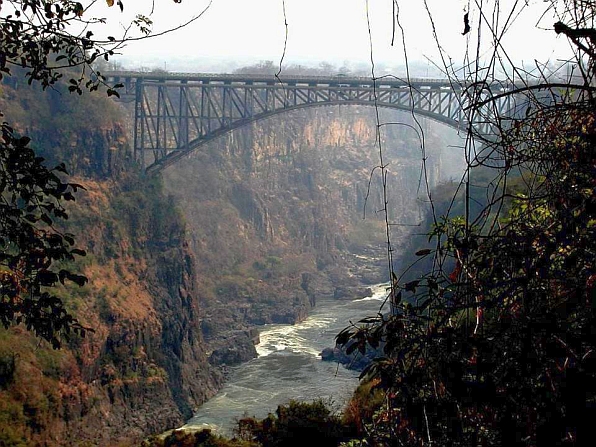A timely new book on southern Africa’s Zambezi River Basin
Over the last decade or so, researchers at the International Water Management Institute (IWMI) have engaged in major efforts to generate and deliver valuable knowledge on Africa’s transboundary river basins. The latest result of this endeavor is a new book titled The Zambezi River Basin: Water and Sustainable Development. IWMI researchers led development of the book and figure importantly among the editors and contributors.

Encompassing contributions from more than 25 authors in and outside southern Africa, the book offers a comprehensive analysis of water and development in the Zambezi Basin, one of Africa’s most diverse and valuable natural resources. This book is the first to assemble in a single volume information on so many aspects of water management in the basin – from hydrology and transboundary water governance to climate risks and strategies for sustainable use of natural resources to strengthen food security, enhance livelihoods and drive economic growth.
 The book is an especially timely contribution, as sustained economic growth is putting greater pressure on basin resources, while also creating new opportunities to combat persistent poverty and inequality in the region’s “dual” economy. A major challenge is to maximize the economic benefits of new investments in large infrastructure, while also managing sustainably the environmental services on which the livelihoods of smallholder farm families depend.
The book is an especially timely contribution, as sustained economic growth is putting greater pressure on basin resources, while also creating new opportunities to combat persistent poverty and inequality in the region’s “dual” economy. A major challenge is to maximize the economic benefits of new investments in large infrastructure, while also managing sustainably the environmental services on which the livelihoods of smallholder farm families depend.
To address the challenge successfully requires increased cooperation among the eight riparian countries – Angola, Botswana, Malawi, Namibia, Tanzania, Zambia and Zimbabwe. Extensive research has shown that this could create substantial social and economic benefits, with estimated values in the billions of US dollars.

Cooperation has often proved elusive, however, despite more than 30 years of effort to lay the foundations for dialogue and collective problem solving. Even so, the approval in recent years of the Agreement on the Establishment of the Zambezi Watercourse Commission (ZAMCOM) and the creation of an Integrated Water Resources Management strategy have finally put in place a framework for channeling investments to realize shared visions and projects.
In this setting, the new book offers a critical analysis of the basin’s current development context as well as future scenarios, based on a thorough and solutions-oriented analysis of biophysical, socio-economic, policy, institutional and governance issues. It thus provides an extremely valuable resource for government decision makers, private sector investors, development partners, university professors and students, and many others with a stake in the direction of basin development and water management.

Key messages from the book underline the vast potential of the Zambezi’s relatively underutilized waters to generate economic benefits through diverse uses. The authors also highlight emerging threats to water security, especially climate change, which is expected to make the basin hotter and drier, but also challenges to water quality and quantity posed by rapid urbanization and population growth as well as the expansion of mining. Coping with these threats will require careful management of tradeoffs between the demands of irrigation, hydropower development and other activities – a task in which this book should prove particularly useful.
Published by Routledge as part of the Earthscan series on major river basins of the world, the book was developed in collaboration with ZAMCOM and the United Nations University Institute for Water, Environment and Health (UNU-IMWEH), and endorsed by the African Ministers’ Council on Water (AMCOW).

